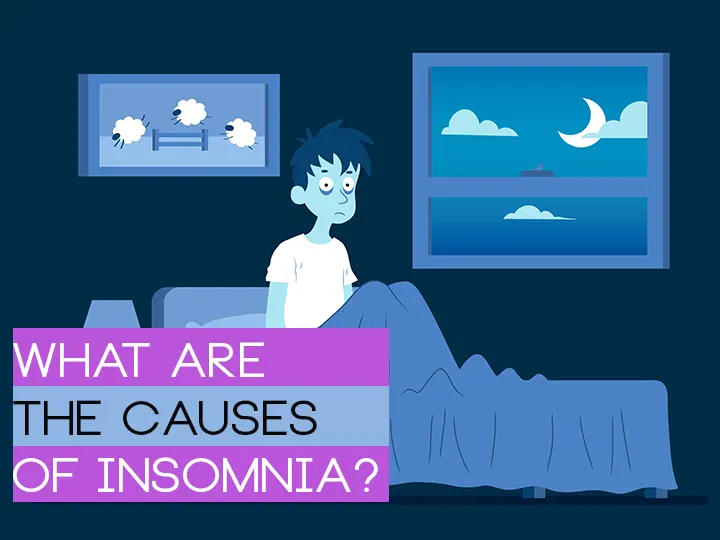
Insomnia is a sleep disorder that affects millions of people worldwide, characterized by difficulty falling asleep or staying asleep. There are many potential causes of insomnia, and identifying the underlying cause is crucial in developing an effective treatment plan.
One of the most common causes of insomnia is stress and anxiety. Stressful events or a general feeling of anxiousness can make it difficult to relax and fall asleep. This can be further exacerbated by the use of electronic devices or caffeine close to bedtime, which can disrupt the body's internal clock and make it harder to fall asleep.
Chronic medical conditions can also cause insomnia. Conditions such as chronic pain, asthma, and heart failure can make it difficult to sleep, as can certain medications used to treat these conditions. Additionally, some medications used to treat other conditions, such as high blood pressure and depression, can interfere with sleep.
Poor sleep habits can also contribute to insomnia. Irregular sleep schedules, napping during the day, and using electronic devices before bed can disrupt the body's internal clock and make it difficult to fall asleep. Environmental factors such as noise, light, and temperature can also affect sleep quality.
Substance use, such as alcohol, caffeine, and nicotine, can also interfere with sleep. While alcohol may help you fall asleep initially, it can disrupt the body's natural sleep cycle and lead to insomnia. Caffeine and nicotine are stimulants that can make it harder to fall asleep.
Age is another factor that can cause insomnia. As we get older, our sleep patterns may change and it may become more difficult to fall asleep and stay asleep.
Insomnia can have a significant impact on overall health and well-being, leading to fatigue, irritability, and a decreased ability to function during the day. It is important to speak with a healthcare provider if you are experiencing insomnia to determine the underlying cause and develop an appropriate treatment plan. This may include lifestyle changes, therapy, and medication. Additionally, maintaining a regular sleep schedule, avoiding electronic devices close to bedtime, and creating a comfortable sleep environment can help improve sleep quality and reduce the risk of insomnia.
In conclusion, insomnia is a common sleep disorder that can be caused by a variety of factors, including stress, medical conditions, and poor sleep habits. Identifying the underlying cause is crucial in developing an effective treatment plan, which may include lifestyle changes, therapy, and medication. By maintaining a regular sleep schedule, avoiding electronic devices close to bedtime, and creating a comfortable sleep environment, individuals can improve sleep quality and reduce the risk of insomnia.